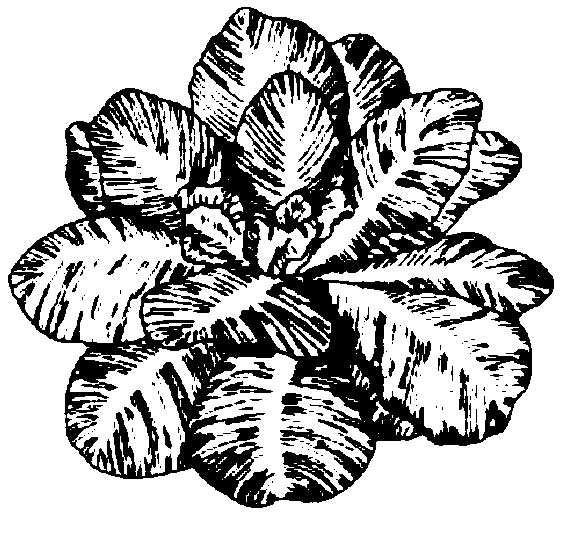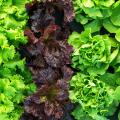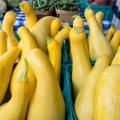Collards
Collards

This leafy green seems to be in gardens year-round but is at its best in spring and fall during cool weather. Early spring plantings produce edible leaves right through summer if watered and fertilized, and if insects are controlled.
Some gardeners prefer to harvest the large, mature lower leaves, leaving young leaves and the growing bud to produce more leaves for later harvests. Other gardeners harvest leaves from young plants by cutting them from the plants, leaving the growing buds to produce leaves for later harvests. Collard seeds are sometimes planted in May, June, or July for summer transplants and fall harvest.
Collards are relatively heavy feeding plants and require side-dressing with a nitrogen fertilizer. The most popular old varieties, Georgia LS (long standing) and Vates, are both relatively slow to go to seed. Vates is the preferred variety for overwintering.
Major insect problems are aphids and leaf-eating worms. Larvae of cabbage loopers and imported cabbage moths are serious pests in late spring, summer, and early fall.
Varieties
- Vates—standard older variety for overwintering; good resistance to bolting; low-growing, compact.
- Georgia LS—spring and summer planting not recommended for overwintering.
- Blue Max—hybrid; slightly savoyed, large leaves that extend down the petioles; blue-green color; mild taste; upright, vigorous, compact plant.
- Champion—Vates type with longer standing ability.
Publications
News
If you grow your own vegetables, you will likely see at least a few pesky insects that want to feed on your plants. Slugs are one of the pests you may be noticing now.
Did you know yellow squash is in the pumpkin family and are 95 percent water?
Tomatoes are a popular crop, both for commercial growers and home gardeners. Even the best tomato growers run into problems along the way! We put together a simple, easy-to-follow guide to help you spot a few of the most common tomato troubles gardeners see.




